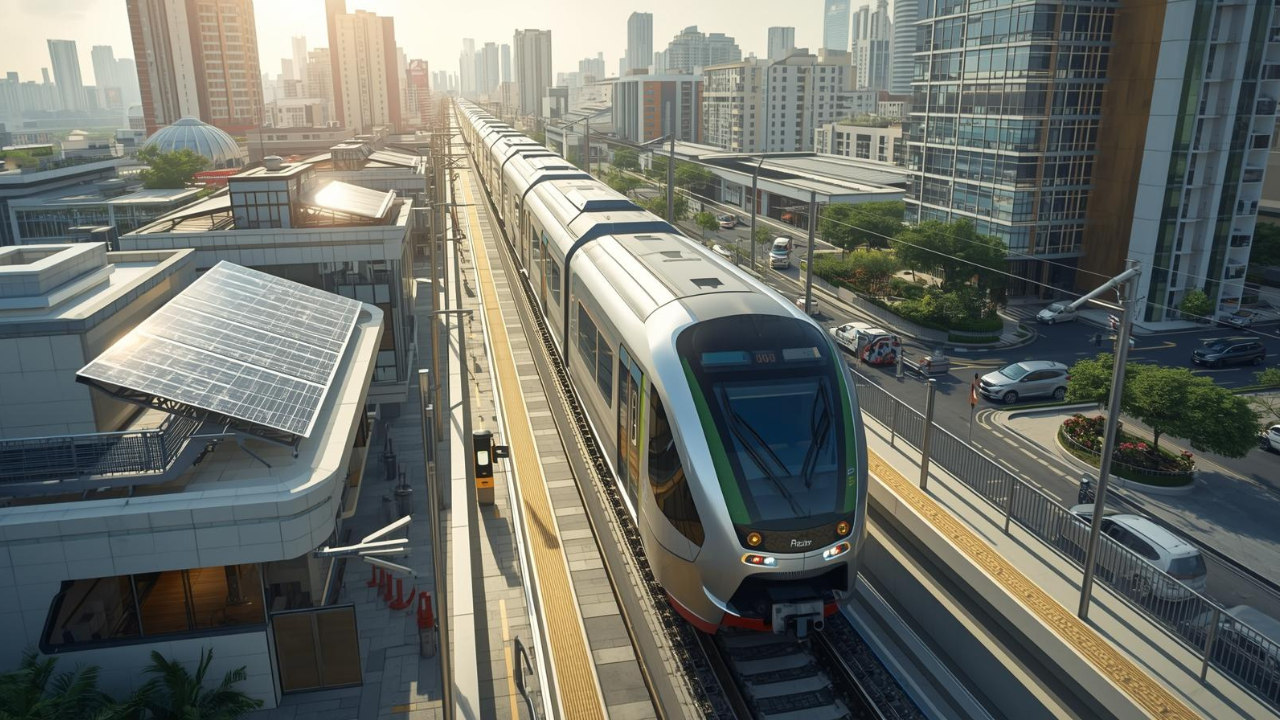
Post by : Meena Rani
India is witnessing a transformative push toward sustainable urban mobility, driven by Prime Minister Modi's ambitious solar energy initiatives. The project aims to integrate renewable energy with electric vehicle (EV) metro systems, accelerating modern public transit solutions in states like Bihar, especially following the recent elections.
Urban mobility is rapidly evolving worldwide, with cities seeking efficient, low-emission transit systems. In India, the focus has shifted toward:
The PM Solar Project connects renewable energy production directly to EV metro operations. Solar-powered metro depots and stations ensure that a significant portion of energy demand is met sustainably.
Bihar, traditionally underserved in terms of modern transit, is now seeing accelerated EV metro rollouts. Key initiatives include:
The success of EV metro rollouts in Bihar relies on several technological advancements:
The Bihar elections provided a backdrop for accelerating sustainable transit projects. Investments in EV metro infrastructure align with broader government objectives, including:
By combining solar energy with EV metro systems, the project reduces reliance on coal and fossil fuels, lowering greenhouse gas emissions. Key environmental advantages include:
While promising, the initiative faces challenges:
However, these challenges also create opportunities for innovation, public-private partnerships, and local job creation, reinforcing India’s commitment to sustainable urban development.
India’s PM Solar Project sets a precedent for sustainable urban mobility. The success in Bihar could serve as a blueprint for other Indian states and cities, integrating:
Experts anticipate that the EV metro rollout, combined with solar energy initiatives, will significantly reduce operational costs, increase transit efficiency, and enhance passenger experience.
The intersection of solar energy and electric metro systems demonstrates India’s commitment to a sustainable, smart, and efficient urban transport future. Bihar’s accelerated EV metro rollout post-elections exemplifies how political will, technological innovation, and environmental priorities can converge to create transformative urban mobility solutions.
Urban Mobility EV Metro Projects Sustainable Transport Smart Cities India Solar-Powered Transit Bihar Infrastructure Green Transportation Public Transit Innovation Electric Vehicles Smart City Development










Advances in Aerospace Technology and Commercial Aviation Recovery
Insights into breakthrough aerospace technologies and commercial aviation’s recovery amid 2025 chall

Defense Modernization and Strategic Spending Trends
Explore key trends in global defense modernization and strategic military spending shaping 2025 secu

Tens of Thousands Protest in Serbia on Anniversary of Deadly Roof Collapse
Tens of thousands in Novi Sad mark a year since a deadly station roof collapse that killed 16, prote

Canada PM Carney Apologizes to Trump Over Controversial Reagan Anti-Tariff Ad
Canadian PM Mark Carney apologized to President Trump over an Ontario anti-tariff ad quoting Reagan,

The ad that stirred a hornets nest, and made Canadian PM Carney say sorry to Trump
Canadian PM Mark Carney apologizes to US President Trump after a tariff-related ad causes diplomatic

Bengaluru-Mumbai Superfast Train Approved After 30-Year Wait
Railways approves new superfast train connecting Bengaluru and Mumbai, ending a 30-year demand, easi